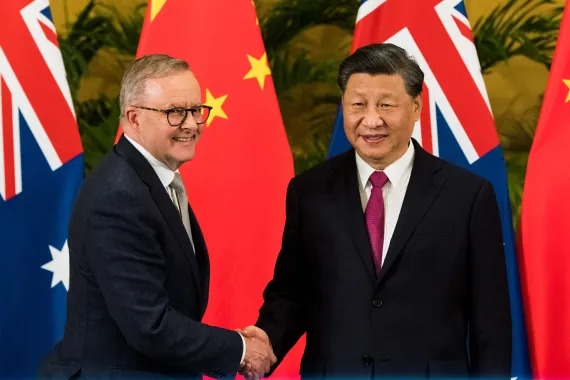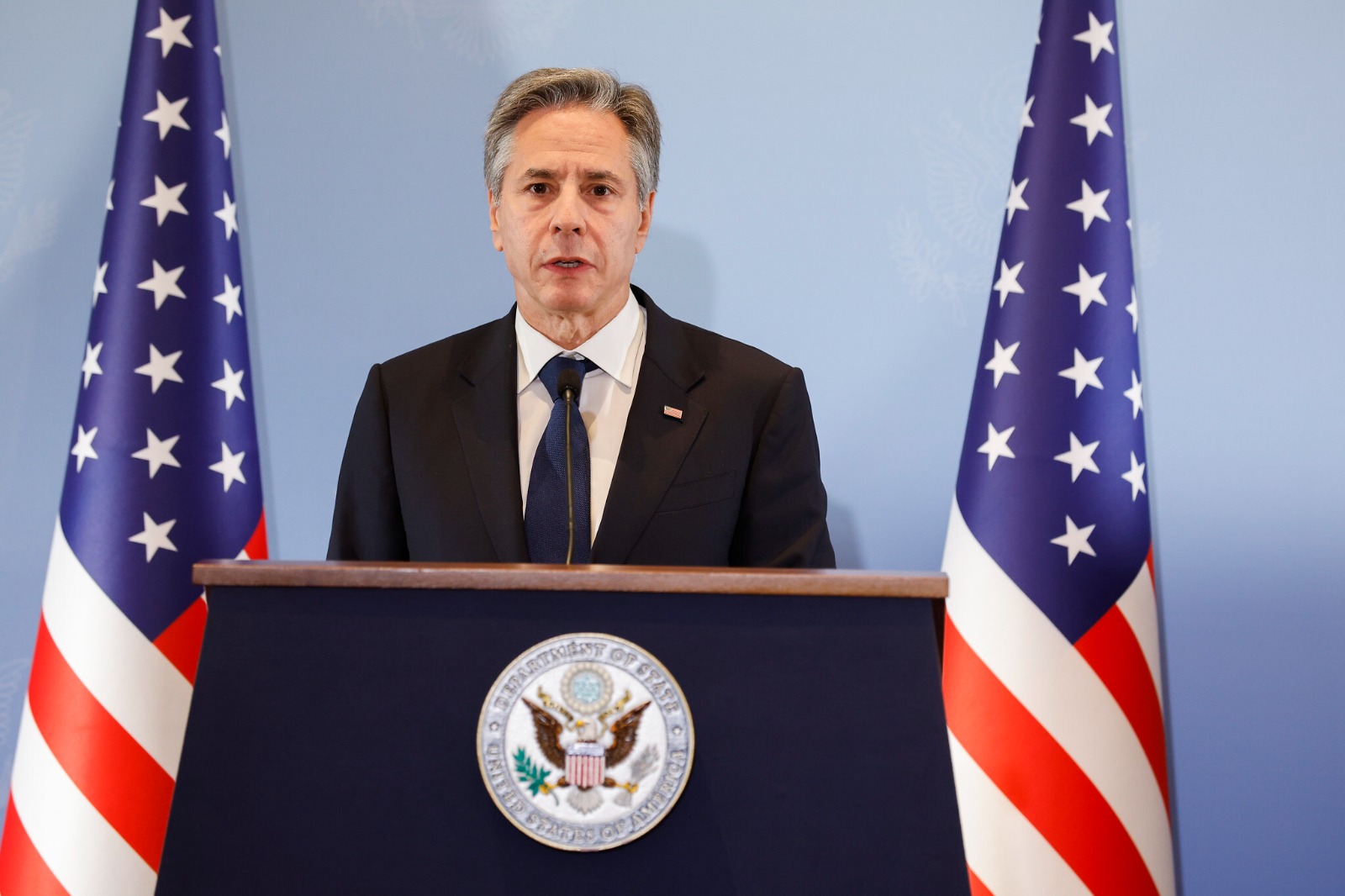Australian Prime Minister Anthony Albanese is embarking on a momentous journey to China, marking the first visit by an Australian leader to the country in seven years. His visit is set against the backdrop of a tumultuous period in Sino-Australian relations, with the hope of a diplomatic reset. This historic trip comes over 50 years after Gough Whitlam’s pioneering visit to China, a symbol of the evolving ties between the two nations. Albanese’s strategy involves striking a delicate balance between strengthening the bond with the United States, Australia’s traditional ally, and stabilizing the relationship with China. As he undertakes this complex diplomatic mission, Australian wine growers anticipate relief from a trade dispute, while advocates for justice urge him to address human rights concerns and detained Australians.
Albanese’s Diplomatic Strategy
Albanese’s strategic approach is characterized by a consistent and steady engagement with international partners. Before his departure to China, he reinforced the importance of maintaining strong ties with Australia’s “forever friend,” the United States. His visit to Washington, D.C., included a lavish state dinner, symbolizing the deepening security cooperation between the two nations through initiatives like the Quad and the AUKUS nuclear submarine deal. These developments have, however, caused some unease in Beijing.
Emma Shortis, a senior researcher in International and Security Affairs at the Australia Institute, highlights the complexity of the balancing act Albanese is attempting. The Australian government is seen as doubling down on its alliance with the US while being determined to stabilize the strained relationship with China, especially in trade. As China remains Australia’s largest trading partner, this challenging path requires careful navigation.
Economic Hopes: Australian Wine Growers Look to Albanese
One group keenly anticipating the outcomes of Albanese’s visit is Australian wine growers. The wine industry suffered a significant setback when China imposed tariffs in 2020, previously being the largest buyer of Australian wine. The dispute over these tariffs has now been suspended at the World Trade Organization, offering a glimmer of hope for progress.
Matthew Rimmer, a Professor of Intellectual Property and Innovation Law at the Queensland University of Technology, suggests that this visit might present an opportunity for the resolution of the wine tariff dispute. However, given the intricate nature of the Sino-Australian relationship, trade negotiations are unlikely to be straightforward. The issue of intellectual property and trade secrets also looms large as a touchy subject.
Advocacy for Justice: Human Rights and Australian Detainees on the Agenda
Albanese assumed power in 2022 with the hopes of resetting Chinese relations that had deteriorated during his predecessor Scott Morrison’s conservative government. Several issues, including trade disputes, COVID-19, political interference, espionage allegations, and human rights concerns, had strained the bilateral relationship.
The recent return of Australian journalist Cheng Lei, who spent three years in Chinese detention, has raised expectations for a potential thaw in relations. However, it is imperative for Albanese to raise issues that require attention, according to Kevin Yam, a Hong Kong lawyer and democracy activist now residing in Australia. He points out the cases of two other Australians – democracy blogger Yang Hengjun and Hong Kong democracy activist Gordon Ng – as critical concerns that should be vigorously addressed during Albanese’s meetings with Chinese authorities.
Albanese has already committed to raising the case of Yang, detained in China since 2019. The Australian leader’s visit is an opportunity to highlight the plight of Australians facing legal issues in China, potentially paving the way for their release.
In a surprising move, Albanese also raised the case of Julian Assange, an Australian journalist detained in the United Kingdom pending extradition to the US. This suggests growing pressure from supporters of Assange within the Australian parliament. As these cases reflect complex international legal and human rights issues, they underline the intricate nature of Australian-Chinese relations.
In conclusion, Anthony Albanese’s visit to China represents a pivotal moment in Australia’s diplomacy. It is a calculated effort to mend relations with a critical trading partner while strengthening the bond with the United States. The outcome of his diplomatic mission may not be immediately evident, but it carries the potential to reshape the dynamics of Sino-Australian relations. Whether it’s addressing trade disputes, advocating for justice, or preserving national interests, Albanese’s journey symbolizes Australia’s commitment to maintaining a delicate balance in a complex geopolitical landscape.
















